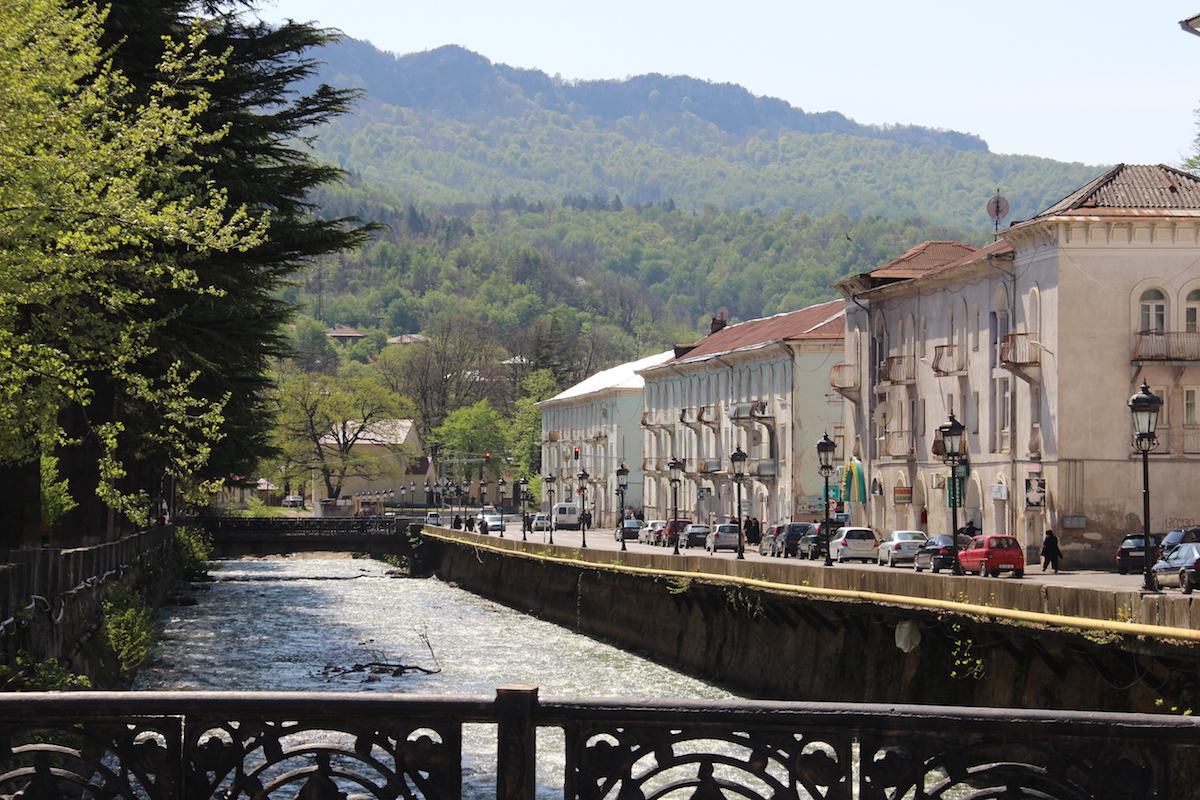EU-backed environmental education centre opens in Georgian village school
The public secondary school in the village of Velistsikhe is the only one in the Gurjaani municipality in eastern Georgia to feature an energy-efficient laboratory.
The laboratory is fully equipped to support environmental sustainability and energy efficiency initiatives.
- Georgia’s Racha: Adopting European green city practices—EU-supported recommendations
- Eco-activism in Georgia: Youth against river pollution
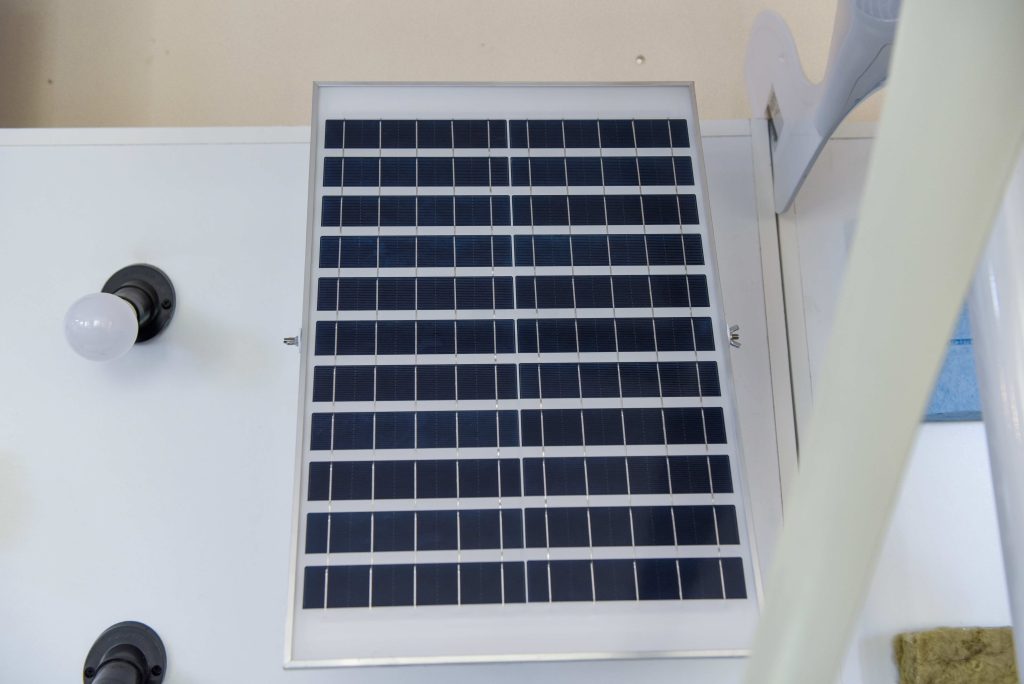
The laboratory features working mini-models of wind turbines and solar panels, devices for measuring and comparing the energy efficiency of different types of lamps, electrical measurement tools, a device for demonstrating the thermal conductivity of building materials, a dimmer device for controlling lamp brightness, solar phone chargers, and more.
Using this equipment, students can observe, describe, and compare, for example, how much electricity different appliances consume or which building materials have higher or lower heat loss.
This laboratory at the Velistsikhe village school was established by the Association of Civil Development of Georgia as part of the grant project Georgia Climate Action Project, implemented by the environmental organization CENN with financial support from the European Union.
What is Georgia’s Climate Action Project?
The four-year Georgia Climate Action Project is implemented with financial support from the European Union by the organization CENN, in collaboration with the Kakheti Regional Development Fund (KRDF), the Chiatura Union (ACU), the Association for the Development of Agrotourism in Racha-Lechkhumi and Kvemo Svaneti (RLS-ADA), and the Union of Young Teachers (YPU). The project spans four regions of Georgia—Guria, Imereti, Kakheti, and Racha-Lechkhumi and Kvemo Svaneti—and aims to strengthen civil society and promote human rights and fundamental freedoms, with a particular focus on the rights to water and a healthy environment.
As part of this program, CENN announced a small grants competition for climate change mitigation and adaptation projects, which enabled the Association of Civil Development of Georgia to establish the environmental education center at the Velistsikhe school.
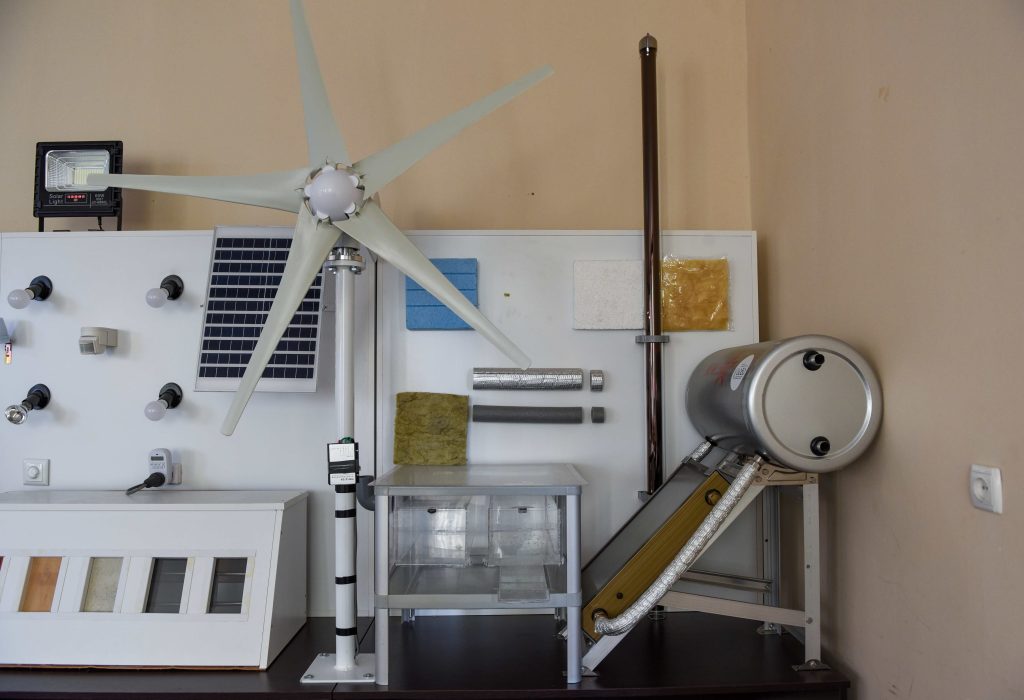
As part of the grant project, the following initiatives were implemented at the Velistsikhe school:
- A Green Club focused on sustainable development and energy efficiency was established.
- A demonstration stand featuring energy-efficient equipment and devices was set up.
- A specialized training program was developed.
- Teachers received training in sustainable environmental development and energy efficiency.
- Thematic television programs on these topics were organized in local media.
- A memorandum was signed requiring the school to operate the center for at least five years.
Project manager Giorgi Bokeria noted that their goal was to create an educational center for sustainable development and energy at the school, aimed at playing a crucial role in promoting environmental awareness.
Environmental expert Alexi Chankotadze added that the center is not just for children from Velistsikhe village, as a memorandum was also signed with other schools in the Gurjaani municipality.
“This means that children from other schools can also visit the center and explore the demonstration stand. Our trained teacher-mentors will provide them with a 1.5–2-hour program,” Chankotadze explained.
How teachers from Gurjaani joined the initiative
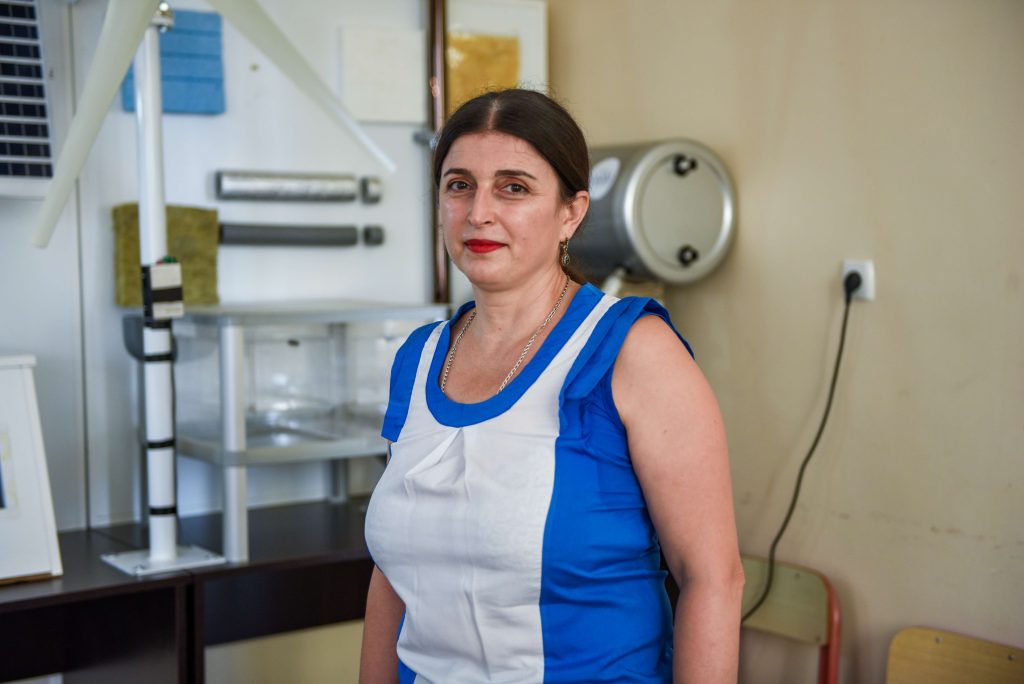
As part of the project, 25 teachers from 22 schools in the Gurjaani municipality underwent specialized training on energy efficiency.
Among them was Nana Nikolaishvili, the current head of the Green Club and a civics teacher.
“Teachers from our school’s natural sciences department attended the training sessions. Additionally, one teacher from each school in the Gurjaani municipality, specializing in ecology or related subjects, participated.
We were provided with a ready-made curriculum, which required teachers to study the energy efficiency laboratory: what each piece of equipment includes, its purpose, and how to translate the knowledge gained here into our daily lives,” Nana explained.
Under Nana Nikolaishvili’s leadership, the Green Club, consisting of 30 students, organized a variety of environmental activities.
These included a clean up and greening campaign, an essay and drawing competition on energy efficiency, a field trip, screenings of themed films and cartoons, collaboration with eco-clubs from other schools in Kakheti, and more.
“The students were highly engaged in the center’s activities. Initially, they helped the organization’s representatives set up the equipment and arrange the supplies. After that, we trained the senior students, and with the administration’s approval, they conducted an ecology lesson for younger students. It was a fun and rewarding experience for everyone involved,” said Nana Nikolaishvili.
Why it’s important to establish such centers in schools
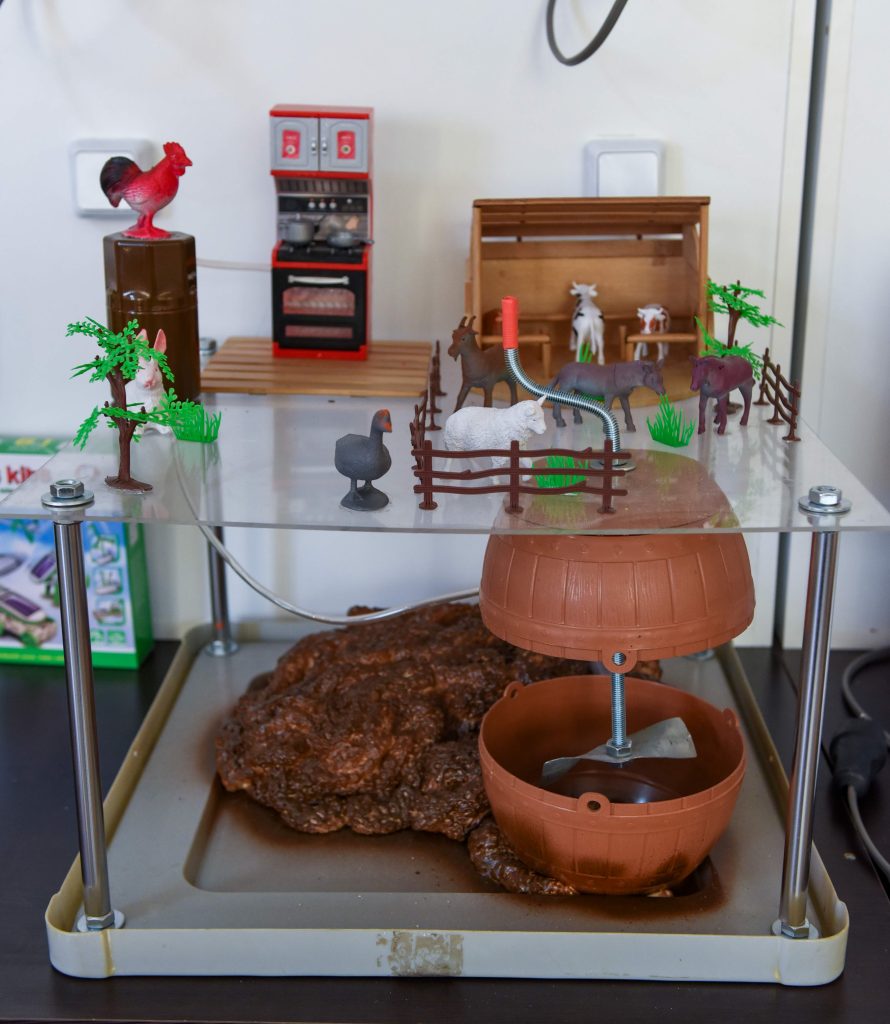
Frequent landslides, wildfires, earthquakes, and floods are all consequences of climate change. One of the driving factors behind climate change is the inefficient use of energy in daily life.
This provides a reason to reflect, even briefly, on the importance of using energy efficiently and the potential consequences of reckless resource consumption.
Energy efficiency and sustainable environmental development are global challenges that are becoming increasingly relevant. Research shows that implementing energy-efficient measures helps reduce household electricity bills and improves quality of life, positively impacting health, the environment, education, and working conditions.
“There are numerous agreements and legal frameworks that require not only countries but also cities, municipalities, and individuals to contribute to achieving sustainable development goals. Everyone must play their part in this effort.
Today’s schoolchildren may become engineers, economists, or other professionals in the future, and in any field, they need knowledge about renewable energy sources, principles of sustainable environmental development, and how to apply them,” explains project manager Giorgi Bokeria.
He also emphasizes that, since many public schools in Georgia lack the necessary infrastructure, it is essential to have at least one such laboratory or educational center in every municipality.
The article was written as part of the “Georgia Climate Action Project,” funded by the European Union and implemented by CENN in collaboration with the Kakheti Regional Development Foundation (KRDF), the Chiatura Union (ACU), the Racha-Lechkhumi and Lower Svaneti Agrotourism Development Association (RLS-ADA), and the Youth Pedagogues Union (YPU). The project’s aim is to strengthen civil society and promote human rights and fundamental freedoms in four target regions of Georgia—Guria, Imereti, Kakheti, and Racha-Lechkhumi and Lower Svaneti—with a focus on the right to access water and a healthy environment.










